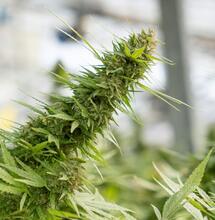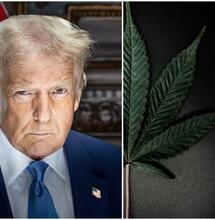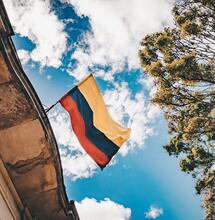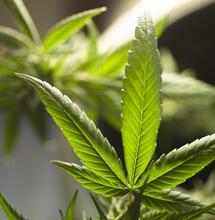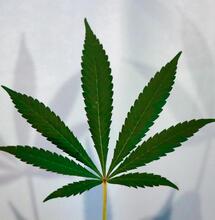Morocco Completes First Weed Shipment to Switzerland
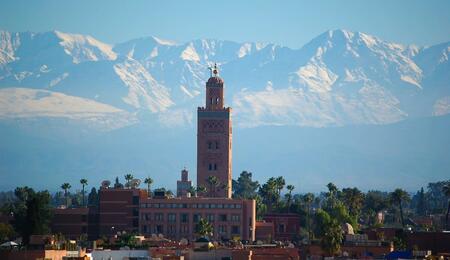
Morocco, where some of the best hashish in the world is produced, has made history by sending the first shipment of legal cannabis to Switzerland. The North African country is also eyeing other European markets where it can commence weed transactions. Cannabis exports to Europe could bring Morocco anywhere between 400 and 650 million dollars in the coming years.
It’s the first time Morocco has made a legal shipment of cannabis to a foreign country. The export concerns resin with less than 1% THC. It was sold between 1,400 and 1,800 euros per kilogram (between US$ 1,500 and $2,000), and it was bound for Switzerland, according to the French daily newspaper Le Monde.
The shipment of cannabis was widely reported in the local Moroccan press, enunciating great enthusiasm and high hopes for the nascent sector and what it might mean in terms of business for private Moroccan players, Le Monde wrote.
Morocco legalized the use of cannabis for medicinal, pharmaceutical, and industrial purposes after six decades of complete prohibition of the plant.
The new legislation has granted more freedoms to private investors, and there are now over hundred active cannabis operators in the North African country. That places Morocco as a significant future contender in the global medical cannabis market, the value of which is projected to reach $50 billion by 2028, according to the American investment fund Insight Partners.
Annual revenues from medicinal cannabis may bring Morocco around $500 million within the next four years, according to the Moroccan Federation of Pharmaceutical Industry and Pharmaceutical Innovation. Another projection says that Morocco may profit from a 10% to 15% share of the European cannabis market.
Morocco’s first legal cannabis harvest in 2023 totaled close to 300 tons. Over two million seeds were imported from Europe for the purposes of cultivation, while growers faced challenges with extreme heat seen in the country over the summer.
Moroccan interests in Europe are not limited only to Switzerland, where the first legal export was recently completed. Moroccan companies are also looking at other countries that have pilot programs in place, such as Germany, Denmark, Italy and France.
European countries also have an interest in Morocco. For instance, there are French companies involved in the Moroccan cooperative Bio Cannat, which processes some of the cannabis exported to Switzerland, according to Le Monde.
Bio Cannat reportedly claims to have registered a dozen products with Moroccan laboratories, and that an additional thirty products are ought to be launched in the coming period. Most of the products are CBD-based dietary supplements as well as cosmetics that can be used for various therapeutic reasons, including stress relief or treatment of skin diseases. Some of these products became available in Moroccan pharmacies on June 1.
Morocco Cannabis Potential Can Strengthen Local Economy
Moroccan authorities ended the prohibition of cannabis with the aim to capitalize on the country’s cannabis potentiality, estimated at US $15 billion, The New Arab reported.
Some of the ambitious projects overseen by the government include construction of modern cannabis processing plants in the regions historically known for production of high-quality resin, in the northern parts of Morocco.
The main goal with the new farming facilities is to produce Cannabidiol. Each facility is planned to include specialized areas for extraction, separation, purification, manufacturing, packaging and labeling CBD, using the latest top-notch technologies. The facilities design will be environment-friendly, to minimize pollution.
A major sponsor of this specific project is the Northern Regions Development Agency (ADRN), which has already allocated a budget of 1,702,000 dirhams (around $174,500) for the first plant in Al-Hoceima, one of the designated regions for cultivation, according to The New Arab. The project is part of a broader national strategy to regulate and build the legal cannabis sector in Morocco.
Since 2021, Moroccan regulatory bodies have issued nearly 3,000 licenses for cultivators, processors, manufacturers, and other relevant players in the local cannabis ecosystem. Many of those licenses have been granted to farmers in the north, who already have generational knowledge and experience with growing cannabis, and who have often faced poverty and oppression because of their occupation.
The new legislation for cannabis should improve the livelihood of the farmers, although the greater challenge would be to subdue illegal trade. Right now, there are farmers who still offer their produce on the black market, either because they don’t trust the state plan or they are in a situation where they cannot abandon black market structures.
While these are considerable movements on the cannabis scene in Morocco, recreational use of the plant remains prohibited by law. Punishments for breaking cannabis rules remain stringent. For instance, getting caught consuming cannabis can result in up to 10 years in prison. But the demand for recreational cannabis continues to persist, in Morocco and anywhere else in the world. Moroccan authorities may want to loosen up the rules on using cannabis as well, hopefully sometimes in the near future. Until then, we can only assume that the black market will continue to thrive.
Also read on Soft Secrets:
- Morocco: The World Cradle of Hashish


